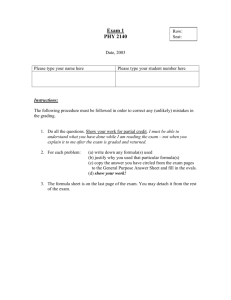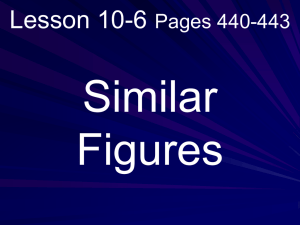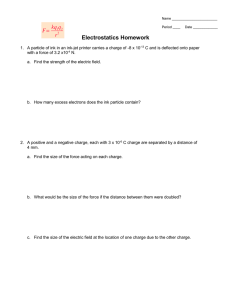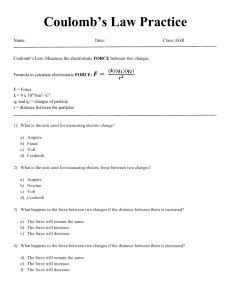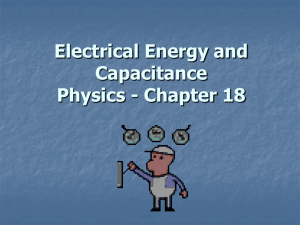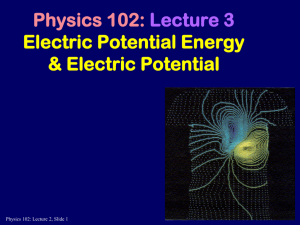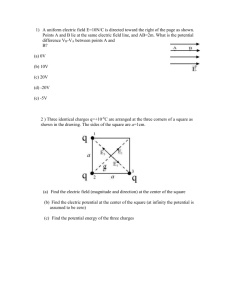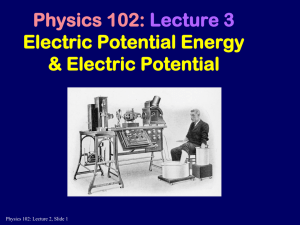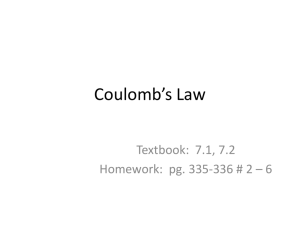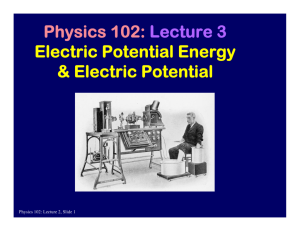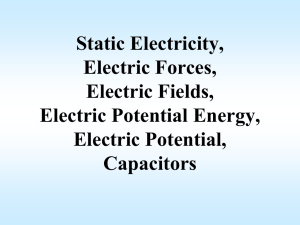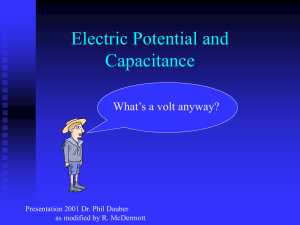Section 2
advertisement
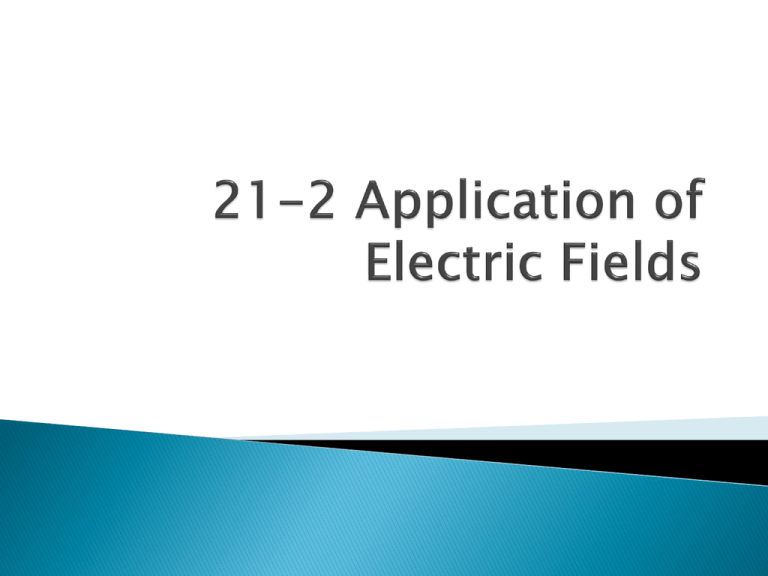
As you lift an object off the ground, you are increasing its potential energy Same is for electric potential ◦ Electric potential (ΔV) Work done moving a test charge in an electric field by dividing the magnitude of the test charge ΔV = W / q (Work is the Potential energy need to remove the charge over some distance = joules) ◦ Measured in joules /coulomb (J/C = Volt (V)) Work is required to push a charged particle against the electric field of a charged body. EPE is the energy a charge particle possesses because of its location in an electric field. If the particle is released it will accelerate away turning the EPE into kinetic energy. If you apply 150 J of work to move a positive charge of 3.5 x 10-6 C from a negative plate, what is the electric potential difference? Known ◦ Work on q = 150 J ◦ q=3.5 x 10-6 C Unkown ◦ ΔV ◦ ΔV = W / q = 150 J / 3.5 x 10-6 C ◦ = Electric Potential ◦ Smaller when two unlike charges are closer together ◦ Larger when two like charges are Uniform electric force and field made by placing 2 large conducting plates parallel to each other ◦ Direction is from + plate to –plate Potential difference, ΔV, between 2 points a distance (d) apart, in a uniform field (E) ΔV = Ed 2 Parallel plates are given opposite charges. A voltmeter measures the EPD to be 60.0 V. The plates are 3.0 cm apart. What is the magnitude of the electric field between them? Known ◦ ΔV = 60.0 V ◦ D = 0.030 m Unkown ◦ E = ??? E=V/d = 60.0 V / 0.030 m = 2.0 x 103 N/C Storing energy in an electric field ◦ Leyden Jar ◦ Developed by Dutch physicist Pieter Van Musschenbroek Used by Ben Franklin to store charges from lightning Version is still used today: Capacitor Ratio of charge stored to electric potential difference: called Capacitance, (C) Capacitor designed to store electric charges and energy ◦ Made of two conductors separated by an insulator ◦ Capacitance = charge / electric potential difference ◦ C = q / ΔV ◦ Measured in Coulomb per volt (C/V) or 1 Farad (F) A sphere has an eletric potential difference between it and Earth of 60.0 V when it has been charged to 3.0 x 10-6 C. What is the capacitance? Known ◦ V = 60.0 V ◦ q = 3.0 x 10-6 Unknown ◦ C = ??? C = q / ΔV = 3.0 x 10-6 / 60.0 V = 0.00000005 F = 0.05 µF Examples: crank/shake flashlight, computer keyboards, flashes in cameras, electronics.
